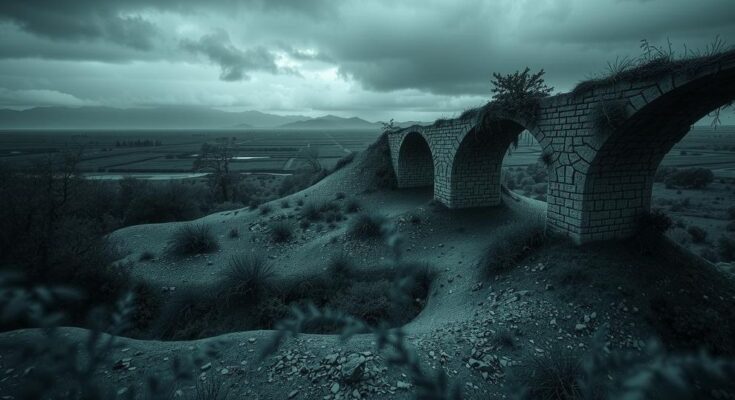The Democratic Republic of Congo has cut diplomatic ties with Rwanda as fighting escalates around Goma, where M23 rebels are making advances. The conflict has resulted in numerous casualties among peacekeepers and displaced thousands of civilians. The UN has held an emergency meeting to address the violence, and the humanitarian crisis in the region is exacerbating due to ongoing conflicts.
The Democratic Republic of Congo has severed diplomatic relations with Rwanda amidst an intensifying conflict involving Rwanda-backed M23 rebels who are approaching the strategic city of Goma. Reports indicate that this escalation has resulted in the deaths of at least 13 peacekeepers and foreign soldiers, while thousands of civilians have been displaced due to the ongoing violence.
The M23 rebel group, largely composed of ethnic Tutsis, has gained significant ground near Goma, which is home to about 2 million residents and serves as a crucial hub for humanitarian and security operations. Accusations from the Congolese government, alongside the United States and UN experts, assert that Rwanda is supporting the M23 rebels, a claim which Rwanda has consistently denied, despite acknowledging its military presence in eastern Congo for security reasons.
In response to the escalating violence, the Congolese Foreign Ministry announced the immediate severing of ties with Rwanda and the withdrawal of all diplomatic personnel. Meanwhile, the UN Security Council has expedited an emergency meeting to address the increasing hostilities, initially planned for Monday but now occurring on Sunday.
Clashes near Goma have intensified, with heavy gunfire reported close to the front lines. The M23 rebels recently captured Sake, raising alarms regarding Goma’s potential fall. Congolese forces, supported by the UN and allied troops, reportedly repelled an M23 offensive, although casualties among peacekeepers from South Africa and Uruguay have been confirmed.
The United Nations peacekeeping mission, MONUSCO, has been present in Congo for over two decades, with approximately 14,000 personnel deployed to maintain peace. Despite their efforts, the security situation continues to deteriorate as armed groups vie for control in this resource-rich region, resulting in pervasive humanitarian crises.
The ongoing conflict in eastern Congo stems from a complex interplay of military groups and historical ethnic tensions, notably involving the M23 rebel group, which emerged after a series of violent conflicts. The region has a long history of instability and violence, with various armed factions competing for dominance, especially due to the area’s abundant natural resources. The role of external nations, particularly Rwanda, has been pivotal in exacerbating tensions, leading to cycles of mistrust and military engagement. Congo’s request for international intervention, alongside regional assistance, signifies the urgent need for a diplomatic resolution to prevent further escalation.
In conclusion, the severance of diplomatic relations between the Democratic Republic of Congo and Rwanda marks a significant escalation in the ongoing conflict involving M23 rebels and government forces. With thousands displaced and numerous casualties among peacekeepers, the situation remains dire. Continued international attention and intervention may be required to stabilize the region and address the underlying humanitarian needs amidst the protracted crisis.
Original Source: apnews.com




